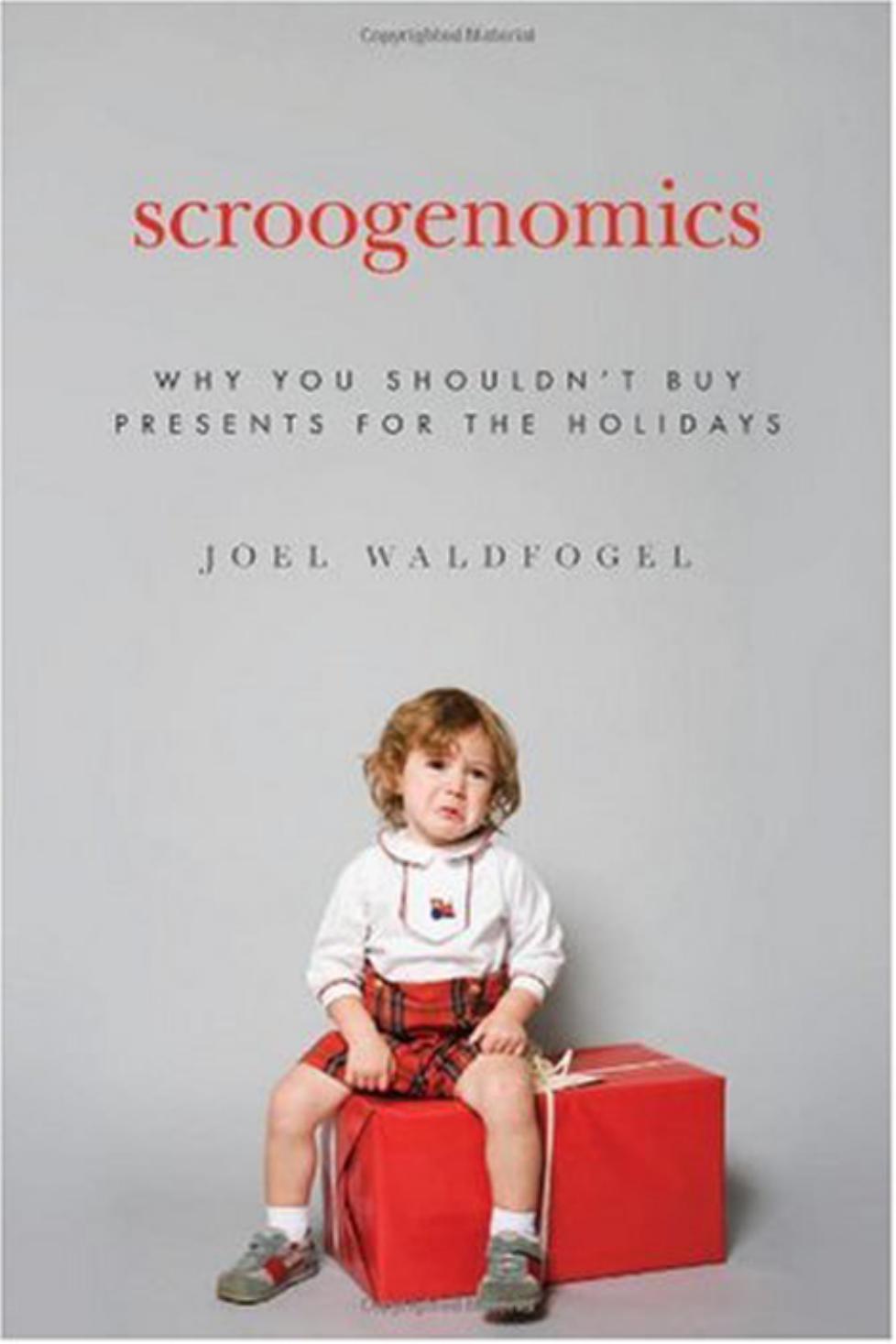Scroogenomics: Why You Shouldn't Buy Presents for the Holidays by Joel Waldfogel

Author:Joel Waldfogel
Language: eng
Format: mobi, pdf
ISBN: 9781400830749
Publisher: Princeton University Press
Published: 2009-10-04T16:00:00+00:00
Is Yuletide Borrowing Bad?
Many normal people would view Yuletide borrowing dimly, as yet another example of profligate American consumers living beyond their means. Because, of course, Americans do live beyond their means and consequently owe $584 billion to the Chinese for their inexpensive products, $170 billion to oil exporters for gasoline, and $504 billion to the Japanese for their cars and electronic toys. But debt is not necessarily bad. It’s customary to borrow money to buy houses and cars, big-ticket items that generate a long-term service flow—and retain some value—long after they are purchased. It makes sense to borrow money to buy a house. If you waited until you had saved enough to get one, few people would live in houses until they were ready to retire. And durable assets (like houses or cars) are normally safe investments from a lender’s perspective as well, since they retain value even if the borrower blows all his money at the track.
But most Christmas spending is for goods that are considerably less durable—and less easily resold—than housing or even cars, raising a question about whether it makes sense to go into hock for Christmas.
To an economist, the growth of credit—that is, the growth in the opportunities to borrow—is an unambiguously good development. Walking around with a credit line expands the set of opportunities that a consumer can seize. Maybe you’ll encounter a great deal on something that is beyond your means today but inside your means next month. Access to credit allows you to take that advantage. Given that access to credit is helpful, it’s hard to argue that the exercise of the option—to consume now and pay later, with interest—is bad.
That said, anything that you’d be embarrassed to tell your mother is probably not entirely good. You, into the phone: “Mom, Wendy and I still owe a thousand on our Christmas presents.” You listen and fidget; then you say: “Yes, I know it’s February.” You listen some more and squirm. “No, I haven’t set up the kids’ college funds yet.” Mom: “Why couldn’t you have saved up for Christmas? That’s what Dad and I did when you were kids. You make a good living. Where does it all go?”
Mom’s got a point. It’s one thing to use credit to take advantage of an unexpected great deal that your future self can afford—and surely wants—even though your present self cannot. But it’s another thing to borrow at 18 percent interest, rather than save, to pay for a fully anticipated expense. Christmas arrives on December 25 every year. It’s fully anticipated by even dimly sentient beings. The need to begin spending the day after Thanksgiving does not come as a surprise. So why would a sensible person need to borrow for it?
True, there could be sensible strategic reasons to borrow to finance Christmas. One, from the Ronald Reagan playbook, is called “starve the beast.” Reagan cut taxes even as he increased military spending as a cunning strategy to raise the federal deficit to the
Download
Scroogenomics: Why You Shouldn't Buy Presents for the Holidays by Joel Waldfogel.pdf
This site does not store any files on its server. We only index and link to content provided by other sites. Please contact the content providers to delete copyright contents if any and email us, we'll remove relevant links or contents immediately.
| Christmas | Easter & Lent |
The 5 Love Languages: The Secret to Love That Lasts by Gary Chapman(8492)
The Space Between by Michelle L. Teichman(6085)
Assassin’s Fate by Robin Hobb(5236)
Wiseguy by Nicholas Pileggi(4585)
Everything Happens for a Reason by Kate Bowler(4067)
Gerald's Game by Stephen King(3917)
A Simplified Life by Emily Ley(3567)
The Power of Positive Thinking by Norman Vincent Peale(3446)
Pillow Thoughts by Courtney Peppernell(3392)
Resisting Happiness by Matthew Kelly(2885)
Girl, Wash Your Face by Rachel Hollis(2819)
Being Aware of Being Aware by Rupert Spira(2704)
Name Book, The: Over 10,000 Names--Their Meanings, Origins, and Spiritual Significance by Astoria Dorothy(2490)
Real Sex by Lauren F. Winner(2474)
More Language of Letting Go: 366 New Daily Meditations by Melody Beattie(2441)
The Holy Spirit by Billy Graham(2413)
Fast Facts on Defending Your Faith by John Ankerberg & John Weldon(2387)
Victory over the Darkness by Neil T. Anderson(2384)
The Secret Power of Speaking God's Word by Joyce Meyer(2251)
